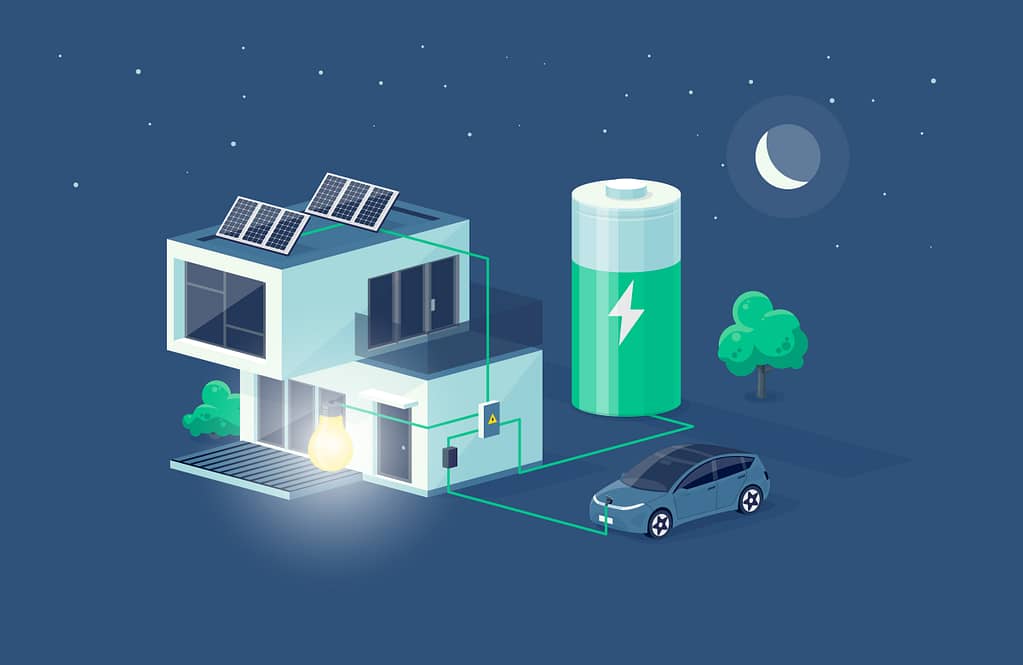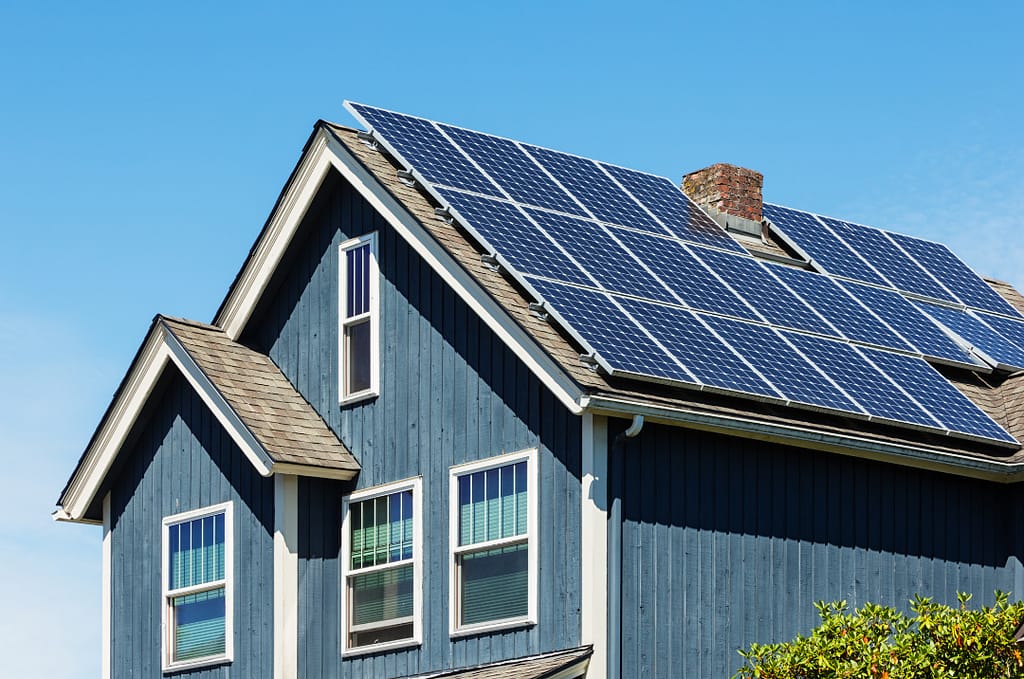This post was originally published on Power Sonic
In an era where sustainable living is paramount and energy costs are on the rise, the spotlight has shifted to a solution that not only addresses these concerns but also unlocks a new realm of possibilities: home energy storage.
Imagine a world where your home is not just a consumer of electricity but a hub of energy, efficiency, and sustainability. That’s precisely what home energy storage systems offer—an opportunity to reshape the way we consume, conserve, and utilize energy within our living spaces.
As the home energy storage market continues to grow, understanding the technology of these systems becomes essential for optimizing their advantages.
What is home energy storage?
Home energy storage refers to the practice of capturing and storing electricity generated from various sources, such as solar panels, wind turbines, or the grid during low-demand periods for later use within a residential setting.
How do home energy storage systems work?
A home energy storage system functions similar to a household rechargeable battery. The process begins with the generation of electricity from sources like solar panels or wind turbines, initially in direct current (DC) form. This DC electricity undergoes conversion into usable alternating current (AC) via the inverter, ensuring compatibility with household appliances.
The surplus energy, generated during high-production phases or low-demand periods, is then accumulated within the system’s battery unit. The monitoring systems diligently track energy levels and usage patterns, enabling homeowners to optimize energy utilization. They can seamlessly switch between stored energy, renewably produced energy, grid power, or even sell excess energy back to the grid.

What does a Home Energy Storage System power?
The energy storage capacity can vary based on factors such as the system’s configuration, battery technology, and the intended purpose. HESS units can store anywhere from a few kilowatt-hours (kWh) to several tens of kWh of energy.
A typical home battery storage system can power essential appliances like lights, refrigerators, fans, computers, heating and colling systems, and communication devices. Depending on the capacity of the battery and the energy consumption of your appliances, a well-designed system can ensure that your daily activities continue without interruption, providing a sense of security and comfort. Larger battery storage systems can support more power-hungry devices, such as charging electric vehicles, allowing you to extend the range of powered equipment.
How are Home Energy Storage Systems Installed?
The installation of home energy storage systems involves a professional assessment, placement of key components like batteries and inverters, and wiring to integrate them into the existing electrical system. Compatibility with solar panels is ensured, and the entire setup undergoes rigorous testing to meet safety standards and local regulations. Homeowners receive a user interface for monitoring and controlling the system, providing insights into energy production, consumption, and storage. The process is designed to guarantee a reliable and efficient home system.

Are Home Battery Storage Systems Worth the Investment?
Home energy storage systems present a transformative opportunity across multiple fronts. For homeowners, they offer significant benefits, such as lower energy expenses, diminished carbon footprint, enhanced control and flexibility over energy consumption, augmented property value, backup power, and efficient management of peak loads.
From an industry perspective, the growth of home energy storage systems opens avenues for innovation and market expansion.
As these technologies become more mainstream, there’s a burgeoning market for manufacturing, installation, and maintenance services, creating job opportunities and economic growth.
Advancements in battery technology and smart energy management systems are pushing boundaries, encouraging research and development, and fostering a competitive landscape for companies investing in renewable energy solutions.
As governments and businesses increasingly embrace sustainability, home energy storage systems become integral components in achieving broader environmental goals, positioning the sector as a cornerstone of the growing green economy.
Home energy storage systems revolutionize residential energy consumption, offering homeowners control, efficiency, and sustainability. As energy costs rise and environmental concerns grow, these systems provide a solution and envision homes as dynamic energy hubs. By harnessing renewable sources and optimizing energy usage, homeowners can reduce their carbon footprint and contribute to a more resilient energy infrastructure. Understanding these systems is key to maximizing their benefits, while their growth creates economic opportunities and drives innovation. Ultimately, home energy storage is a crucial step towards a greener future for all.

